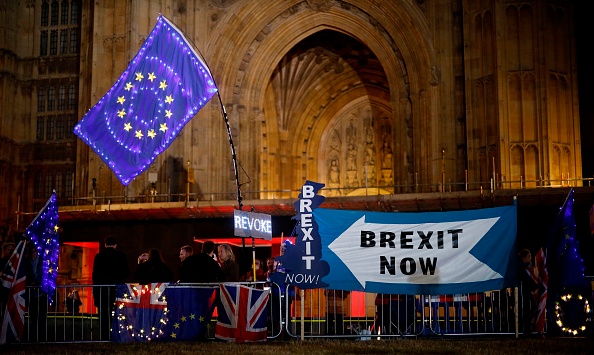Peering through the Brexit haze: What we know so far

One of my favourite intellectual exercises that we use in my political risk firm is what we call “seeing through the fog”.
When a long-standing geopolitical topic seems to resemble nothing so much as King Minos’ labyrinth, senior staff and I repair to a good wine bar and spend an afternoon not talking about all the things we don’t know, but instead dwelling on what we do.
The end result almost always produces analytical clarity about what had until so recently seemed utterly inscrutable.
As a public service to those of you at their wits’ end about the interminable soap opera that is Brexit, I thought it useful to go through this process with you, sadly absent the fine Italian wine.
For beneath the baffling moves and counter-moves, there is actually a lot we do know.
First, the political intractability of the problem goes back to the original sin of Brexit: Theresa May’s utter bungling of the last election.
The underlying strategic conundrum is that the elected parliament’s members overwhelmingly voted to Remain, the people narrowly opted to Leave, while the base of the ruling Tory party sweepingly voted to exit the EU.
All efforts to craft a specific Brexit policy have run aground of this formidable political reality.
Second, the only way to change this daunting maths is in the usual Jeffersonian fashion: by having an election that removes the political conditions that have so crippled the body politic. Whether it is held in late October (which we now know it will not be), mid-November, or early December does not change this basic point.
Third, while forces in the Labour party who are opposed to the referendum result flail about furiously for a way out of the political conundrum by any means other than holding a fresh vote, in truth they are less concerned with “solving” the Brexit crisis than they are about postponing the coming election, which is certain to bring them only another defeat.
The days of Jeremy Corbyn’s fleeting popularity at pop festivals are now long gone. The reality is that Labour is transparently and hypocritically posing as the defender of parliamentary democracy – a stance that does not pass the laugh test.
Clearly, Labour’s real terror is going back to the country, being seen as the obstructor of allowing the referendum result to be honoured, and taking yet another political shellacking.
Fourth, the polling is quite clear on this. Current polling averages, as of 8 September, show the Conservatives ahead with 33 per cent of the electorate (up around nine points since Boris Johnson assumed the premiership), Labour at 24 per cent, the Liberal Democrats surging to 18 per cent, with the Brexit Party at 13 per cent.
A YouGov poll of early September strikingly found that only one in five British people think that parliament is in touch with the public over Brexit. All this makes it extremely clear that Labour is not about to be handed the keys to Downing Street in a long-term way.
Fifth, there is only one – but it is highly significant – caveat to all this. While it is true that if no other major factors change, Boris and the Conservatives will either find themselves where they are now (the largest party in what is in essence a hung parliament) or in better shape (crafting a durable majority), one basic point could upset the apple-cart.
If the Prime Minister were to renege on his promise to enact Brexit, this clarity goes out the window.
This is the overriding political reason that the Prime Minister’s many political enemies will do almost anything to avoid him fulfilling his promise to sort out Brexit – for to do so brings him victory and them political calamity.
This above all is why the Remainer alliance is playing the seemingly suicidal obstructionist card. For if Boris is discredited, a significant portion of the dispirited Tory vote that is returning to him from Nigel Farage will just as quickly flee back to the Brexit Party, dooming both the Prime Minister and the Conservative party as a whole.
Sixth, this is why, for both good political and policy reasons, Boris must not bend to his enemies’ will.
Most likely, the Prime Minister will decide to resign (barring pulling the all-Ireland backstop option out of the hat). By forcing a seemingly triumphant Remainer caretaker government to call the election which will seal its doom, stepping down will ironically ensure his ultimate political victory.
These are the facts that we know about Brexit. What we don’t is whether the Prime Minister will act on them.
Main image credit: Getty